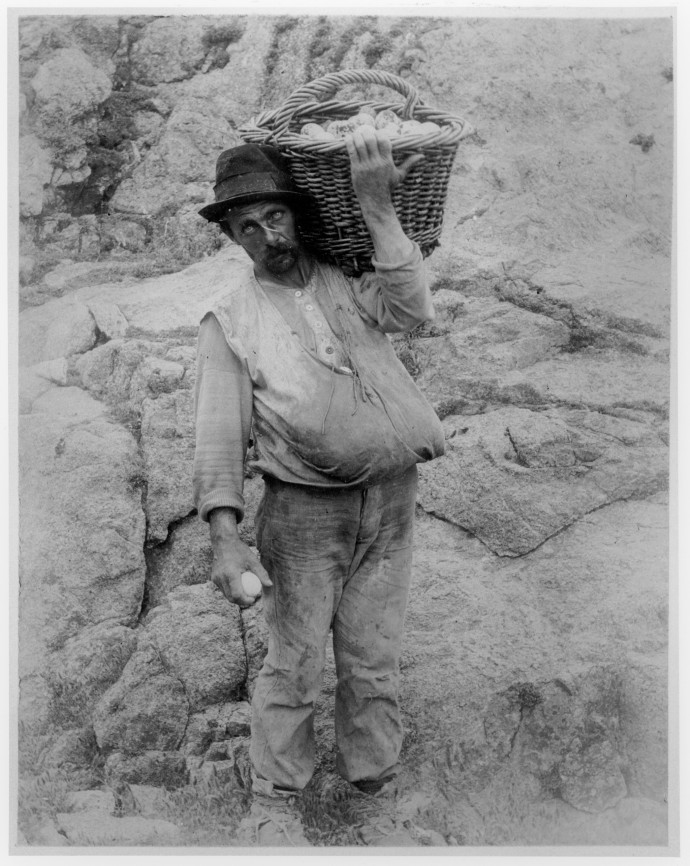Subscribe to the podcast: iTunes | Stitcher | RSS

A hidden Gold Rush kitchen when food was scarce and men died for eggs… We travel out to the forbidding Farallon Islands, 27 miles outside San Francisco’s Golden Gate, home to the largest seabird colony in the United States, where in the 1850s egg hunters gathered over 3 million eggs, nearly stripping the island bare, to feed the ever-growing migration of newcomers lured by the Gold Rush.
Today The Farallons are off limits to the public. Only a handful of scientists are allowed on the island at a time – it’s a sanctuary – the Farallon National Wildlife Refuge managed by the U.S. Fish and Wildlife Service.
When we began working on The Egg Wars we were given permission to go out to the Farallones on one of the supply runs that heads to the islands two times a month. Senior Scientist Russ Bradley takes us out on the jagged granite cliffs to contemplate the murres, and into the 1870s lighthouse where the scientists live, isolated, for months at a time.
Special thanks to Point Blue Conservation; The Farallon National Wildlife Refuge, managed by the U.S. Fish and Wildlife Service; San Francisco Bay National Wildlife Refuge Complex.
And many thanks to:
Russ Bradley, Senior Scientist, Farallon Program Manager, Point Blue Conservation
Doug Cordel, the San Francisco Bay National Wildlife Refuge Complex
Eva Chrysanthe, graphic illustrator
Roger Cunningham, Skipper of the Selkie
Keith Hansen, graphic illustrator
Gary Kamiya, author of Cool Gray City of Love
Gerry McChesney, US Fish & Wildlife Service
Melissa Pitkin, Point Blue Conservation
Peter Pyle, Marine Biologist and Ornithologist, Institute for Bird Populations
Mary Jane Schramm, Gulf of the Farallones National Marine Sanctuary
Peter White, author of The Farallon Island: Sentinels of The Golden Gate
Pete Warzybok, Farallon Program Biologist, Point Blue Conservation
Support for this story comes from The National Endowment for the Humanities and The National Endowment for the Arts — Art Works.
